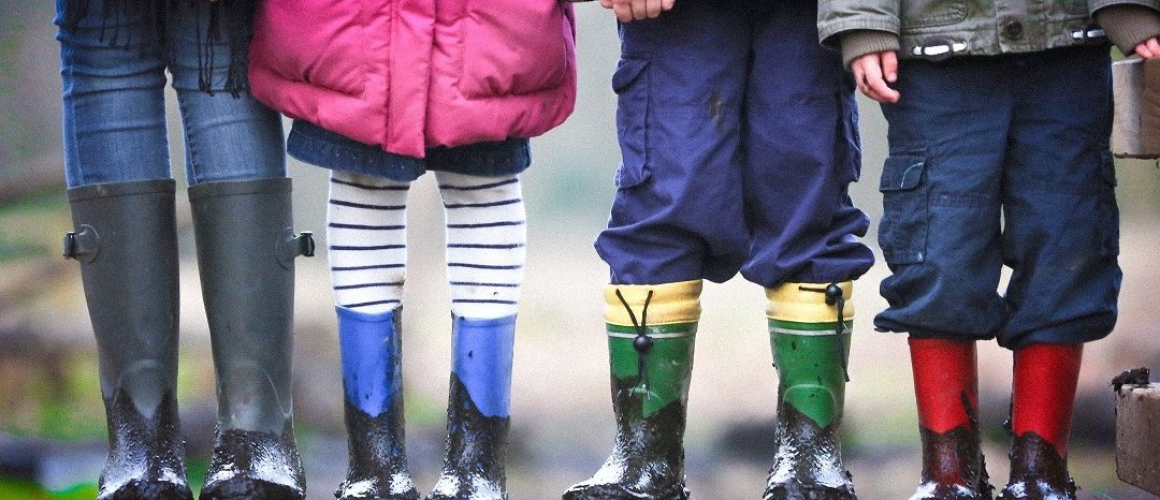As your little one has slowly become a preschooler, you’ve likely noticed that they have begun to exhibit different behaviors, verbal expressions, and ways of dealing with different situations. While this change is normal, it’s important to make sure that they are learning what is socially acceptable both inside the home and outside the home. In today’s post, we’ll take a look at why children need to develop proper social skills to help you feel more confident as you enter this new phase of parenting.
At Growing Room in Bonita Springs, our child development center can work with you to help teach your child proper social skills. From saying please and thank you to shaking hands and taking turns, we will partner with you to reinforce the good manners that will help your child grow into a successful and well-adjusted adult. Contact us today to learn more about our child development center.
1. Confidence
Social skills are a vital part of helping each of us have and maintain positive interactions with others. These are not innate behaviors, rather, they are learned and practiced. As children learn the right ways to interact both with their peers and adults, they will begin to develop confidence that will serve them throughout their life. They start their learning at home as they observe what you say and do. It’s important to make sure that you do the things you tell them are important since they will likely mimic your behaviors more than anything else. When they know how to behave and what is expected of them, they are able to be more relaxed and confident.
2. Cooperation
Every child is different in terms of their abilities to form and maintain friendships. One social skill that will help them to be successful is learning how to cooperate. Many children who are first-born or only children struggle with sharing as they have not had to learn this skill at home. The time they spend at a child development center will help them to see and understand the value of working with others to accomplish a task as well as sharing resources for the benefit of everyone. It is important for them to understand the values of cooperation and sharing, as these will be social skills they need throughout their lives.
3. Curiosity
Curiosity is a valuable skill for young ones as it plays a big role in how much they are able to learn and understand. Their thirst for learning is something that you want to encourage and engage by providing a number of age-appropriate materials and lessons for them to explore. Curiosity is also how young children learn about one another and what makes them similar or different. Use this time to help them understand the right way to ask questions about those who are different from them. This ability will help them to avoid hurting other children’s feelings, and might also be the source of many wonderful friendships.
4. Communication
Clear, effective, and appropriate communication can be difficult for everyone, especially young children. You can help your child develop this social skill by teaching them the right way to express themselves, when it’s okay to share what’s on their mind, and when to save it for later. This will be a skill that you will continue to work on until they are out of the house as each new stage of growth presents new communication challenges. Don’t get discouraged as you work on this particular skill. Continue to reinforce what they are doing right, and encourage them to strive for improvements when they make mistakes.
5. Friendships
As your child makes friends in the neighborhood and at their child development center, look for opportunities to meet their friends and their friends’ parents. The more that you can learn about the girls and boys that your little one is friends with, the better you will be able to guide them when they come to you for help with a conflict. Additionally, getting to know the other parents can provide the camaraderie and support you need as you work together to raise children who are good friends.
6. Social Skills in the Home
It’s important to help your child understand that there are different social skills to use when you are home. You can start by explaining how you expect them to treat family members, and then demonstrate it with your own words and actions. It’s important to remember to be patient as they learn these skills and have them practice until they begin to feel more comfortable with what is expected of them.
7. Social Skills Outside of the Home
Similar to teaching your child how to behave in the home, you’ll want to talk with them about when they should say please, thank you, you’re welcome, and so on. Once you’ve talked about different times they would use those phrases, it’s important for you to model those behaviors for them. Be patient and prompt them as often as needed until they are able to remember those skills and manners on their own.
Teaching your child the right social skills is a large task. Don’t allow yourself to feel overwhelmed. Focus instead on teaching little pieces at a time, and remind yourself that your ultimate goal is to help them be a well-mannered adult who is confident and well-adjusted. At Growing Room, we are proud to offer the caring teachers and supportive environment to help your little one shine at our child development center. Contact us to tour our facility in Bonita Springs, and learn how we can help your child develop the social skills they need.


